There are moments in the life of a nation when conscience must become louder than power, when truth must rise above the comfort of silence, and when the moral fabric of leadership is weighed on the scale of history. Nigeria has reached that moment.
The decision by President Bola Ahmed Tinubu to extend presidential pardon to individuals convicted of crimes as grave as drug trafficking, kidnapping, fraud, and murder is not only a national embarrassment but also a moral catastrophe. It is an insult to justice, a betrayal of the rule of law, and a brazen assault on the memory of every Nigerian whose life has been shattered by the very crimes now rewarded with presidential mercy.
There is an old story from the creeks of the Niger Delta. A fisherman named Doye once rescued a crocodile trapped in his net. The beast thanked him and swore eternal friendship. Weeks later, it returned to devour his only son. When the distraught man cried out, the crocodile said, “Mercy without discernment is cruelty in disguise.” That, tragically, is the parable of Nigeria today. Tinubu’s presidential pardon is not mercy; it is moral cruelty cloaked in the garment of compassion.
The prerogative of mercy is a sacred power, not a political toy. It is meant to heal, not to harm; to redeem, not to ridicule justice. In every democracy, the power to pardon is a moral scalpel used with precision — not a butcher’s knife swung blindly at the pillars of accountability. When properly exercised, it is a bridge between justice and humanity. But in the wrong hands, it becomes a guillotine to the soul of the nation.
At a time when Nigeria is bleeding from insecurity, moral decline, economic trauma, and social despair, President Tinubu’s decision to pardon convicts of corruption and drug crimes is a thunderbolt of irresponsibility. Twenty-nine per cent of those pardoned were convicted of drug-related offences. These are not harmless offenders. They are the merchants of misery who have destroyed generations of Nigerian youths, turned our communities into cemeteries of promise, and painted our global image with the dark brush of narcotics.
And yet, the President who once forfeited thousands of dollars to the United States over drug-related investigations now grants mercy to men who mirror his own controversy. Is this mercy or mutual absolution? Is this compassion or complicity? The moral irony is staggering.
Chief Obafemi Awolowo, that titan of principle, once warned, “The worst crime against society is the crime of corruption, for it destroys the moral fibre of a nation.” By this standard, what we witness today is not just a crime of governance; it is a desecration of the national conscience. The very institution meant to enforce moral order has become the factory of moral disorder.
Imagine a mother whose son was kidnapped and killed by men now granted presidential clemency. Imagine the police officer who gave his life to arrest a criminal, only to see that same criminal set free in the name of mercy. Imagine the young Nigerian whose life has been wrecked by drugs, now hearing that traffickers are being celebrated by the state. What lesson is the government teaching? That crime pays, provided it pays power first?
Dr. Nnamdi Azikiwe, the visionary Zik of Africa, once said, “No nation can rise above the standard of its leadership.” If our leaders trivialise justice, our people will normalise criminality. If leadership loses its moral compass, the nation loses its soul. What Tinubu has done is not a mere administrative action; it is a sermon in immorality.
Sir Ahmadu Bello, the Sardauna of Sokoto, reminded us that “Leadership is a trust; to betray that trust is to destroy the foundation of the state.” Tinubu’s action is a betrayal of that trust. When the state begins to shield the corrupt, it leaves the honest unprotected. When the state begins to pardon drug traffickers, it leaves our youth without hope. When the state glorifies crime under the banner of compassion, it undermines its very claim to legitimacy.
It is often said that a nation’s strength is not in the might of its army but in the integrity of its justice. Yet, Nigeria’s justice has been mutilated by the very hands sworn to uphold it. The presidency, rather than defending the law, now presides over its desecration. Clemency, in this context, is not mercy — it is mockery. It is a political handshake with the underworld.
Aminu Kano, the saintly philosopher of the masses, once declared, “A nation that allows injustice to reign will soon become ungovernable.” Today, we stand on that precipice. The moral chaos unleashed by this pardon will outlive its signatory. It sends a dangerous signal to every corrupt official, every fraudster, every drug peddler, and every political ally — that crime no longer carries consequence in Nigeria, only connections.
In a nation where justice has been gasping for breath, this pardon is the final suffocation. The Nigerian judiciary has long struggled to assert itself in the face of political intimidation. Now it must watch helplessly as its verdicts are shredded by executive arrogance. What becomes of the moral courage of judges when their judgments can be casually overturned by a stroke of ink from a morally compromised presidency?
The tragedy of this moment is not just that criminals have been pardoned; it is that morality itself has been condemned. Clemency, when exercised in error, weakens justice. When exercised with ulterior motives, it murders it.
We recall the words of Gani Fawehinmi, the fiery conscience of the nation, who said, “When injustice becomes law, resistance becomes duty.” Nigerians must resist this creeping normalisation of immorality. We must reject the deceit that cloaks criminal indulgence in the robes of mercy. We must reclaim the moral spine of the nation before it bends permanently under the weight of corruption.
Our founding fathers governed with conscience. Awolowo’s integrity, Zik’s intellectual depth, Bello’s discipline, Aminu Kano’s compassion — all combined to form the moral backbone of Nigeria’s political foundation. Today, that backbone has been replaced with moral arthritis. Leadership no longer inspires virtue; it incentivises vice.
The current pardon by the Tinubu administration is a slap across the face of every honest citizen. It is a sermon of cynicism preached from the pulpit of power. The government cannot claim to fight corruption while cuddling the corrupt. It cannot claim to combat drug trafficking while embracing traffickers. It cannot talk about national renewal while romanticising criminality.
If this is mercy, then hypocrisy is holiness. If this is compassion, then chaos is virtue. If this is leadership, then Nigeria has been abandoned to moral bankruptcy.
Imagine justice as a fragile clay pot handed down from our ancestors. Every abuse of power cracks it further. With this reckless pardon, Tinubu has not only cracked it; he has shattered it. And the shards of that pot are now cutting deeply into the soul of the nation.
What Nigeria needs is not a presidency that excuses corruption but one that exterminates it. What we need is not mercy for the mighty but justice for the weak. What we need is not a pardon for the guilty but protection for the innocent.
Let it be recorded in the moral annals of history that when this nation was bleeding from the wounds of corruption, one man stood and said enough. I write not in bitterness, but in defence of conscience. For conscience, though battered, must never be silent. A presidency that pardons the guilty while punishing the poor is not a democracy; it is a tyranny with a smiling face.
As the fisherman Doye learned too late, mercy without wisdom devours the innocent. And today, Nigeria’s innocence is on the menu of political convenience.
The question before the nation is simple yet profound: Who is this mercy for? The nation, or the president himself? For when a leader drenches justice in the wine of indulgence, the intoxication spreads to all who follow.
Nigeria stands at a crossroads between redemption and ruin. If justice falls, no nation can stand. And if this pardon is the new face of leadership, then history will remember that at the moment when Nigeria needed moral courage, its president chose political cowardice.
Aare Amerijoye DOT .B
Director General
The Narrative Force

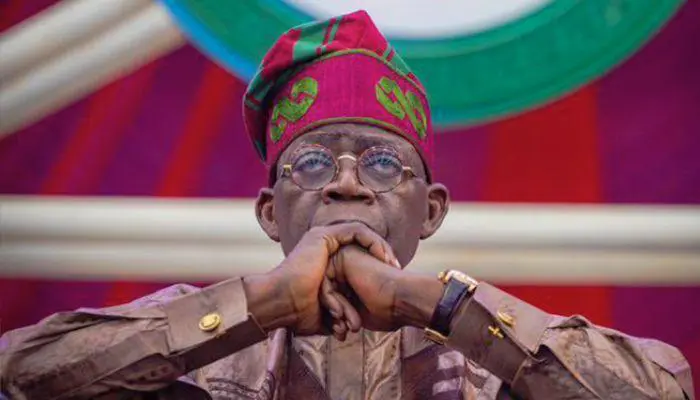
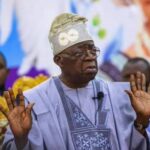
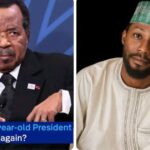



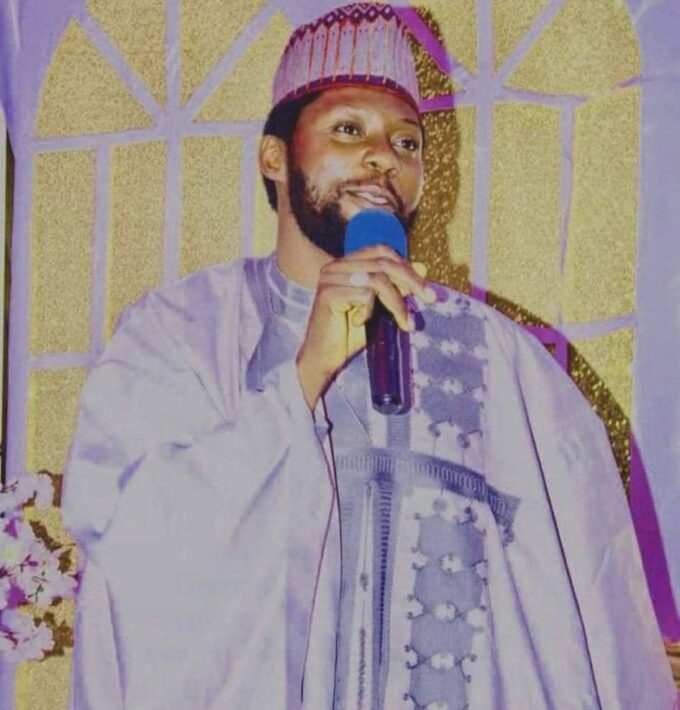

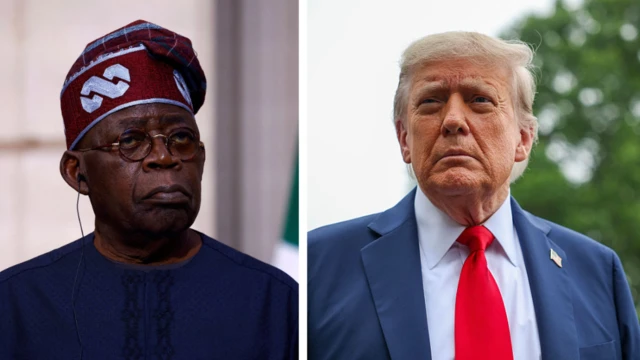




Leave a comment